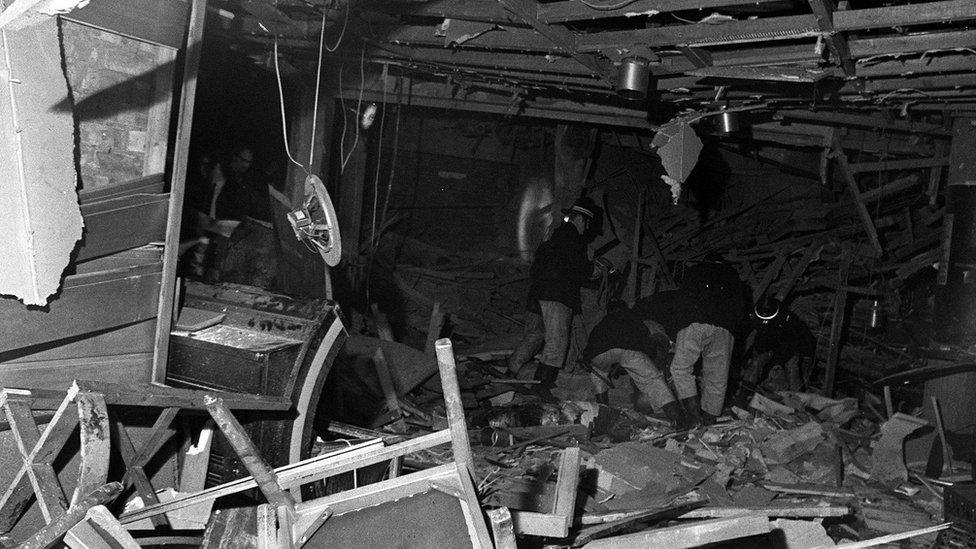Birmingham pub bombings: Jury sworn in for inquests
- Published
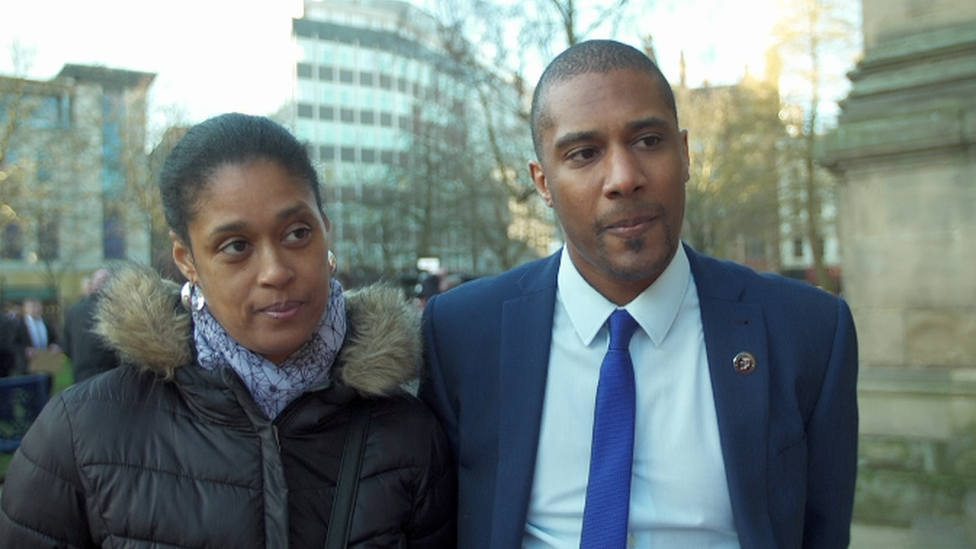
Siblings Michelle Sealey and Paul Anthony Bridgewater say they have become "like a family" with others who lost loved ones in the bombings
A brother and sister whose father was among the victims of the Birmingham pub bombings say they are hoping for "the truth" from the resumed inquests.
Two bombs ripped through the Mulberry Bush and Tavern in the Town pubs on 21 November 1974, killing 21 and injuring 220.
A jury was sworn in earlier as the inquests reopened after a long fight by families.
Paul Anthony Bridgewater and Michelle Sealey are among relatives attending.
Mr Bridgewater, whose father Paul Anthony Davies died in the bombings, said: "The coroner has ruled out a lot of things but we want the truth really.
"We want the truth and we want to know what happened back then. It's been too long and there's that many theories out there and unanswered questions as well."
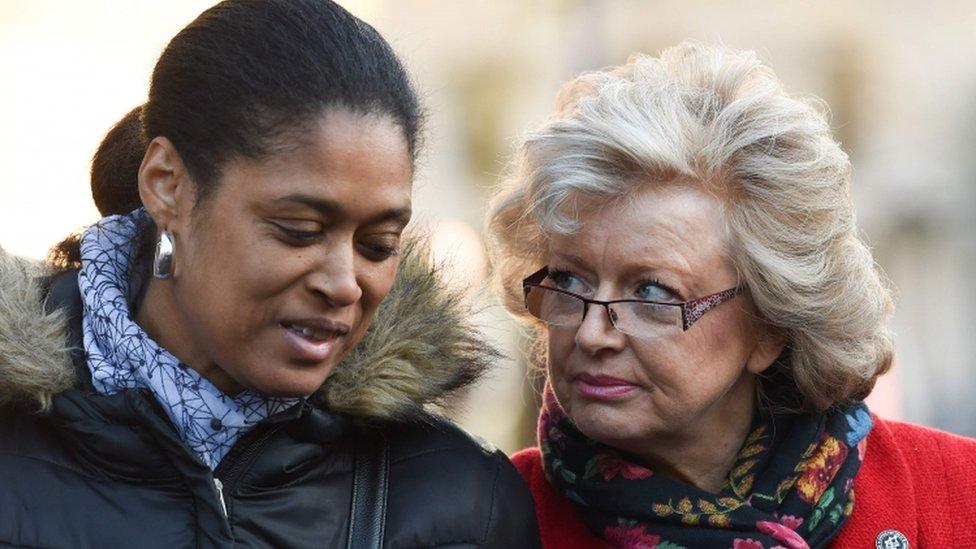
Michelle Sealey, whose father Paul was killed, and Julie Hambleton, whose sister Maxine died, are among family members at the hearings
Coroner Sir Peter Thornton said the jury of six women and five men had an "important civic duty" as he adjourned the inquests until Tuesday.
The individual inquests could last up to six weeks, the coroner said. The jury will return verdicts on how all victims died.
The hearings began with a minute's silence.
Sir Peter said the inquests would not deal with the issue of who planted the bombs, adding that was a "task of police, prosecutors and the criminal courts".
He said although a single hearing, lasting up to six weeks, the inquests would deal with "21 separate people, 21 separate lives lost from two terrible events".
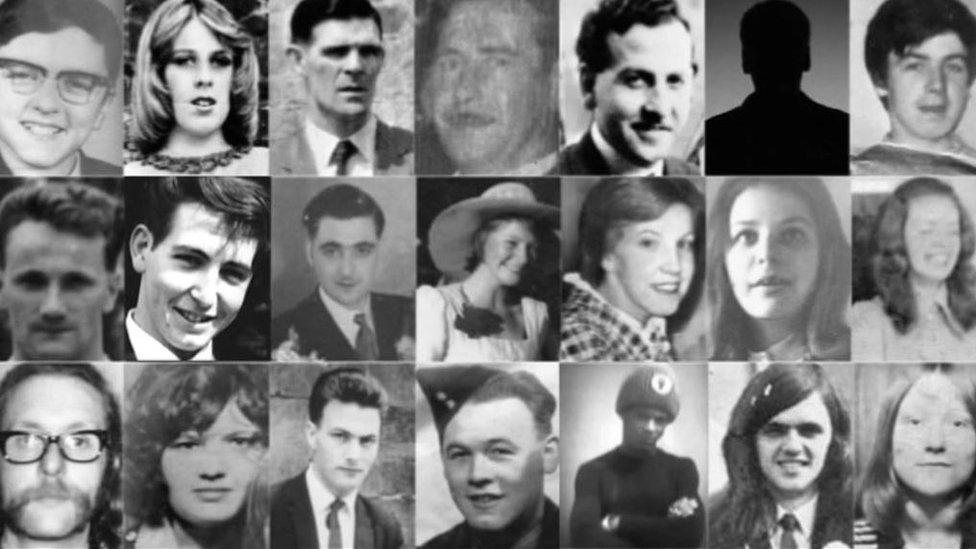
Twenty-one people died when two bombs were detonated in Birmingham in 1974
Jurors, sitting at Birmingham Civil Justice Centre, were told they would hear evidence from only a few eyewitnesses because some were "no longer alive".
Sir Peter added: "They will be doing their best to recollect events accurately, but we all know memory will sometimes have gaps."
He said there would be details of the so-called "forewarning issue", and evidence the British authorities may have received information signalling the attacks, including an alleged tip-off concerning a "possible conversation in a local prison nearly two weeks before".
Jurors would also hear an account of "evidence of a students' visit to a police station the evening of the bombings, which was cancelled", Sir Peter said.
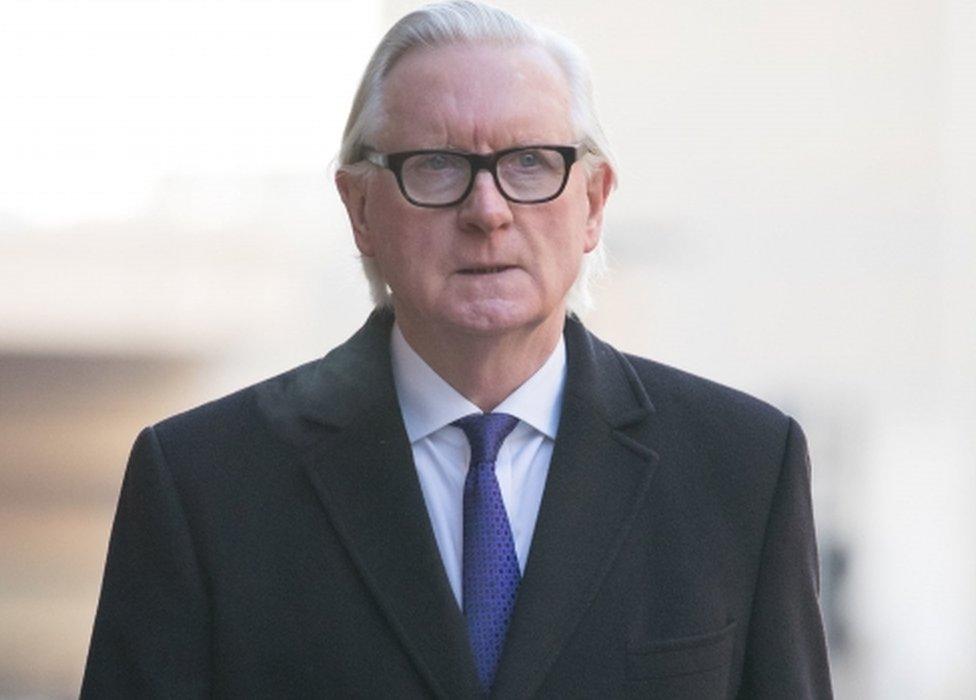
Coroner Sir Peter Thornton QC arrives for the start of hearings at Birmingham Civil and Family Justice Centre
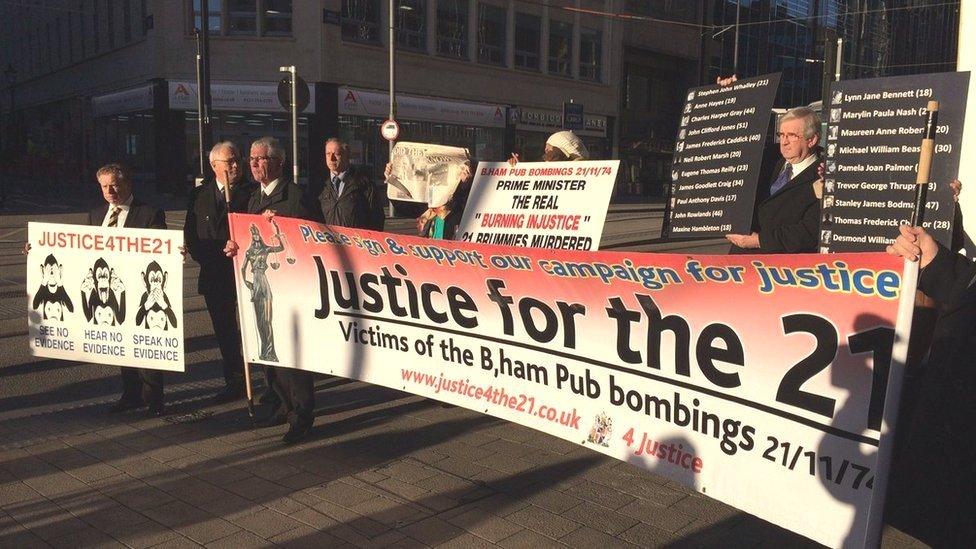
The families of the victims have fought for years to have inquests reopened
Mr Bridgewater said the loved ones of victims had formed close bonds.
He said: "We are a like a close-knit family and that's what bonds us and keeps us strong."
His sister Ms Sealey added: "It's the knockbacks that make you want to push forward even more because there is something there that we need to find out."
Inquests were opened days after the bombings but adjourned because the case was subject to a criminal investigation.
The Birmingham Six were jailed for the murders and served 17 years behind bars before their convictions were quashed.
Sheila's son Stephen Whalley died in the bombing - she wants to know who was responsible
Despite the subsequent overturning of the verdicts, the inquests were never reopened.
Fresh inquests were ordered in 2016 but delayed because victims' families disagreed with the coroner, who ruled out naming those suspected of carrying out the bombings.
But the Court of Appeal in September upheld the coroner's decision.
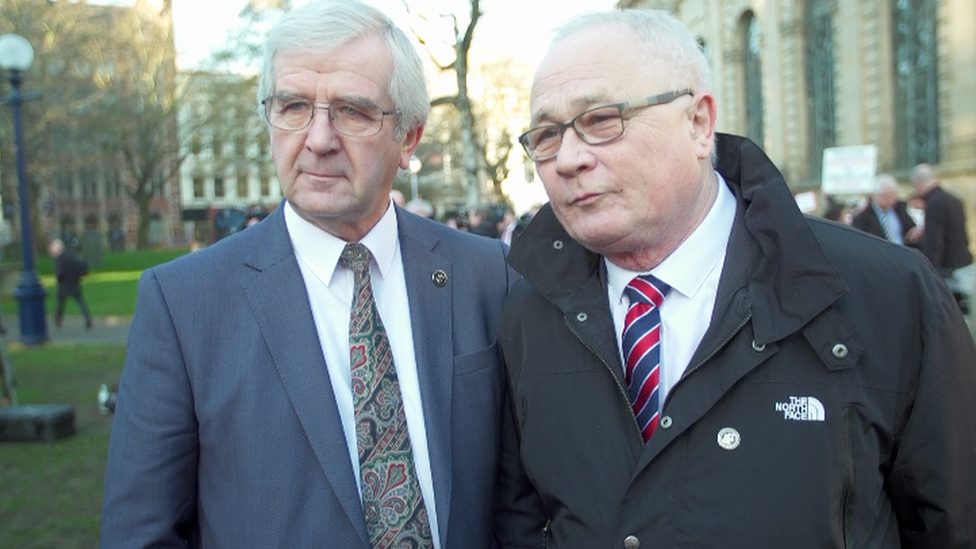
George Jones (left) and Paul Bodman, who both lost their fathers, said the scope of the inquests was too narrow
George Jones, who lost his father John Clifford Jones, told the BBC he hoped the remit of the inquests would have been broader.
"It's an opportunity to answer a lot of questions but my own feelings and those of most of us is those avenues have been cut off by the coroner's decision of narrowing the scope," he said.
Paul Bodman, whose father Stanley died, described the hearings as "a tick-box exercise".
"It's a stepping stone to see what we can get from this inquest and perhaps we can take it further," he said.
Hearings will continue on Tuesday and Wednesday with pen portraits of each of the victims, while on Thursday, the jurors will be taken to the former sites of the pubs.
Sir Peter is due to give his closing address on 28 March before the jury's deliberations start the next day.

Analysis
By Midlands correspondent Sima Kotecha
Today marks a significant moment in this long running story.
These attacks on Birmingham happened more than four decades ago - and still the families of those killed have many unanswered questions.
Some of them have fought with every ounce of their energy to have the inquests into the bombings reopened to try and establish some of the detail that has been missing.
Today, the coroner will begin that process of attempting to fill some of the gaps - but will it be enough?
Already the scope of the inquests has been narrowed - and the crucial perpetrator issue will not be addressed so the families will not discover who was behind the killings.
So what will they learn over these weeks - and will it add anything new to what they already know, even though it may not be in the public domain?
The answer to the latter will assess the effectiveness of the process in their eyes.
However, for the coroner and the courts, much sought after inquests taking place in the first place is likely to be viewed as a triumph.
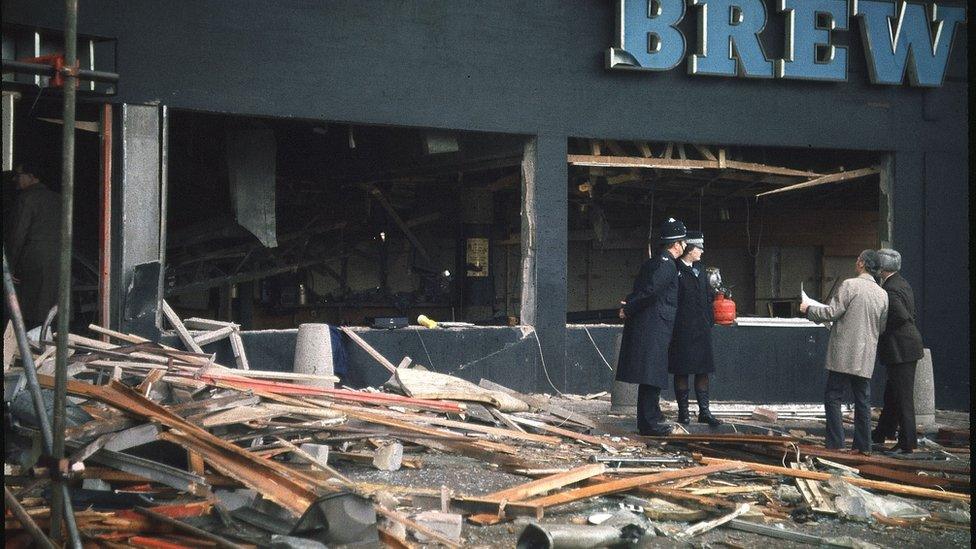
Ten people died in the first blast at the Mulberry Bush, below the Rotunda building
Amendment 14 March 2019: This story has been updated to reflect the most recent information that 220 people were injured in the blasts.

Follow BBC West Midlands on Facebook, external, on Twitter, external, and sign up for local news updates direct to your phone, external.
- Published25 February 2019
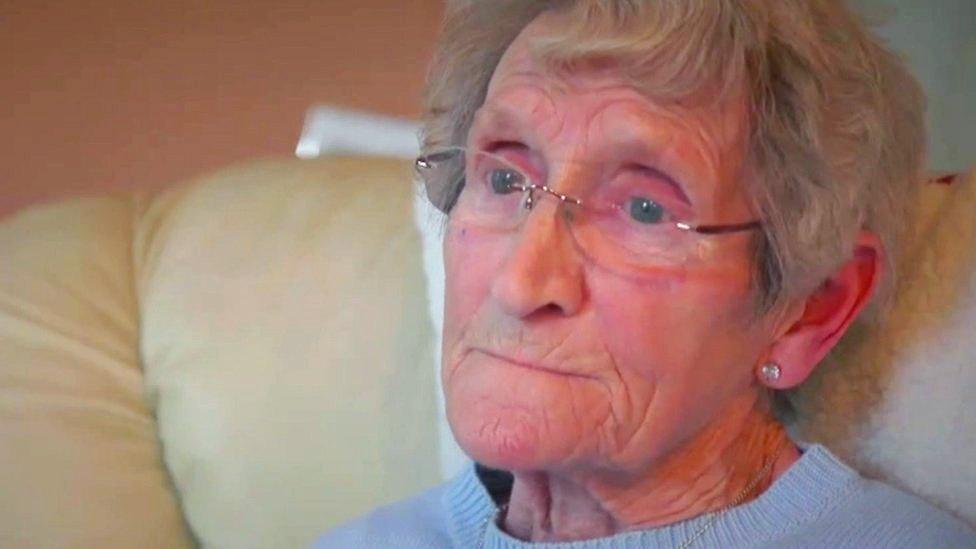
- Published17 January 2019
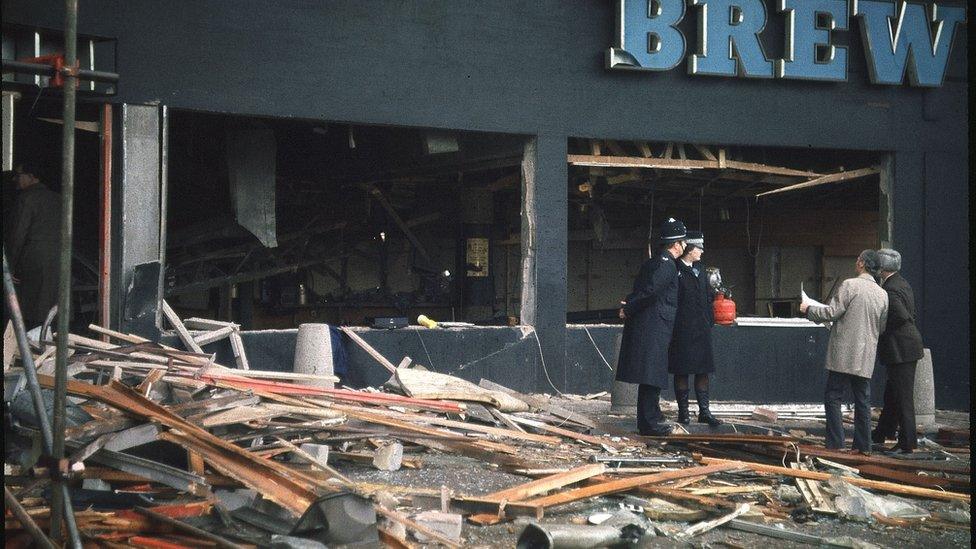
- Published18 December 2018

- Published21 November 2018
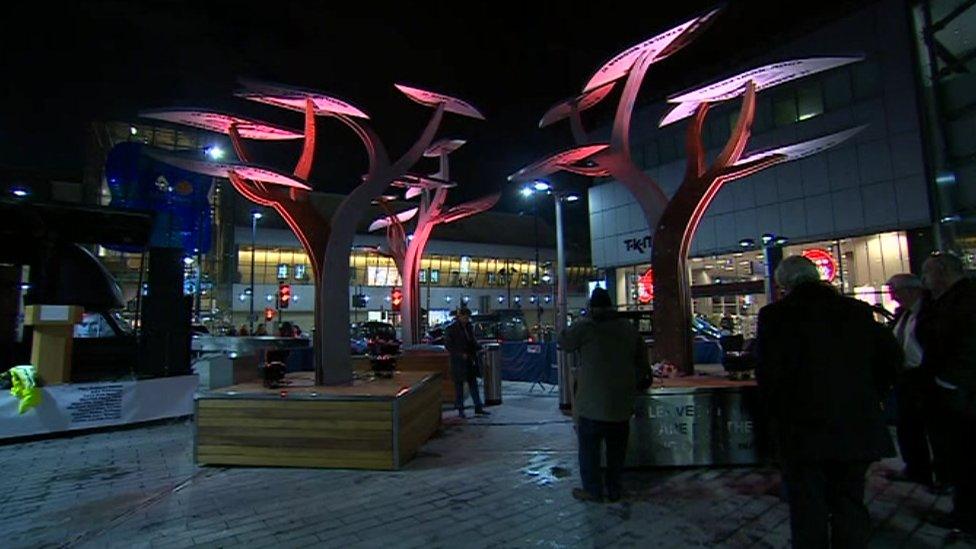
- Published31 October 2018

- Published28 September 2018

- Published26 September 2018

- Published12 March 2019
